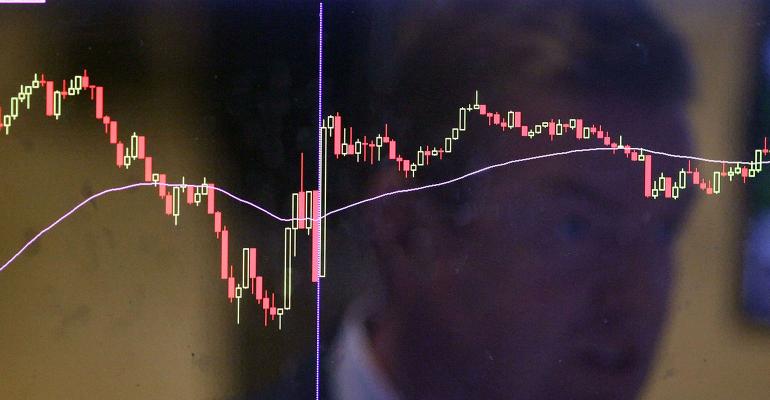(Bloomberg) -- Traders who are better at listening to the clues their bodies give them about market patterns make more money and survive longer in the industry, according to a study by former Goldman Sachs Group Inc. derivatives trader-turned-neuroscientist John Coates.
Coates, whose 2012 book “The Hour Between Dog and Wolf” revealed how traders’ decisions are influenced by biology, wanted to find out whether gut feelings were valid signals or just noise. So, along with medical researchers at the University of Cambridge, he examined the physiology of 18 male high-frequency traders working at a London hedge fund. The results, published Monday in online journal Scientific Reports, show risk-takers who more accurately estimated their own heart rates -- a test for the inward-looking sense called interoception -- made more money than those who were poor at the task.
“We’ve known that the physiology is usually more accurate in representing the risk and opportunity in markets than people’s conscious assessments,” Coates, 54, said in an interview last week. “If there are such valuable trading signals in our bodily reactions, then is it possible that people who are better at sensing those physical changes are accessing invaluable trading signals?”
The role of gut feelings in trading has been talked about, if not proven, for decades. Billionaire hedge-fund investor George Soros is said to overhaul his portfolio when his backache flares up. Advances in our understanding of the connection between physiology and performance could help human traders remain relevant as machines take over more market-making and investing functions.
Counting Heartbeats
The test subjects were asked to count their heartbeats, without feeling any pulse points, over random periods of time. The estimates were then matched with actual heart rates, said Coates. As it turns out, traders are better at the interoception test than the general population, with an average accuracy score in the study of 78.2 percent, compared with 66.9 percent for a control group made up of Cambridge students.
Then, using traders’ profit-and-loss statements, Coates and his colleagues found that those with higher sensitivity made more money in the past year. Most surprising to Coates, who spent 12 years trading derivatives for Goldman Sachs, Merrill Lynch & Co. and Deutsche Bank AG, is that the longer subjects have been working, the more accurate they were. While traders with less than four years experience scored 68.7 percent, those who had been working at least 8 years scored 85.3 percent.
“It’s incredible that the market might be selecting for this,” Coates said. “There’s this really powerful advantage in the market, and nobody knows about it.”
Coates devotes parts of his book to how the preconscious brain evolved to aid pattern recognition, helping our ancestors avoid predators and today’s risk-takers make quick decisions. The system is a “parabolic reflector collecting signals inaccessible to conscious mind” and sending messages -- a momentary rise in pulse or a sinking sensation -- to the body to guide action, he said.
“When I was identifying a good trade, I just knew when it was going to work, there was something different about that train of thought,” Coates said. “I wondered what that something extra was, and now I’ve got a pretty good idea.”
Fitness Markers
One of the key takeaways from Coates’s work is that the body and mind are intimately intertwined. Fitness markers like lower body mass index and resting heart rates are correlated with better interoception -- good reason for risk-takers to hit the gym, according to the paper.
The findings are compelling enough that Coates said he left Cambridge to work with a tech startup on a product related to his research. He wouldn’t identify the firm.
“This is not, you know, ‘May the force be with you,’” Coates said. “It’s not this mystical thing. You have to be trained properly, you have to work out, and you can tune yourself so gut feelings get better. Then you’re in a world of trading that’s just completely new.”
To contact the reporter on this story: Hugh Son in New York at [email protected] To contact the editors responsible for this story: Peter Eichenbaum at [email protected] Robert Friedman





